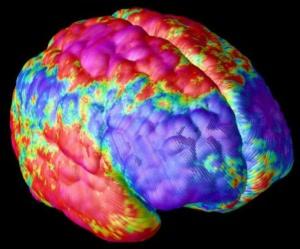The Paradoxical Ego
Nonfiction, Health & Well Being, Medical, Nursing, Home & Community Care, Religion & Spirituality, Philosophy, Psychology| Author: | Eugene Halliday, Zhu Kabere | ISBN: | 9781872240343 |
| Publisher: | Melchisedec Press | Publication: | August 20, 2017 |
| Imprint: | Melchisedec Press | Language: | English |
| Author: | Eugene Halliday, Zhu Kabere |
| ISBN: | 9781872240343 |
| Publisher: | Melchisedec Press |
| Publication: | August 20, 2017 |
| Imprint: | Melchisedec Press |
| Language: | English |
Three particular themes are basic to this study. First, that the human race and its environment are involved in a slowly progressive process of revelation and understanding of its inherent features; and that we are all participating in this ongoing evolutionary cycle. Second, and closely related to the first tenet, man is not separable from his environment. We all share in this cyclic development. Third, that our egoic structures, with the data and experiences they involve, can play a key role in our personal understanding of this ongoing developmental process.
The role of the ego is paradoxical. It can be a relatively stable reference used to enhance personal insight concerning its own dynamic structure and similar aspects of its environment. Or it can be maintained with a rigidity that hinders progressive learning. That is, the ego unit has the dual possibilities of affording a focus aiding progressive insight, or becoming a barrier that temporarily diminishes it.
The aim of this study is therefore to reduce possible restrictive rigidity as we investigate the role of the egoic unit in seeking greater understanding of its own dynamic structures and their similarly dynamic environment. To pursue this aim we refer to insights from medical practice, philosophy and science.
The underlying awareness of an evolving consciousness means that the insights and ideas presented are shared in the expectation that they too will be modified in due course. But if they help provoke interest and insight concerning the paradoxical nature of our personal processes, they will have served their purpose.
Three particular themes are basic to this study. First, that the human race and its environment are involved in a slowly progressive process of revelation and understanding of its inherent features; and that we are all participating in this ongoing evolutionary cycle. Second, and closely related to the first tenet, man is not separable from his environment. We all share in this cyclic development. Third, that our egoic structures, with the data and experiences they involve, can play a key role in our personal understanding of this ongoing developmental process.
The role of the ego is paradoxical. It can be a relatively stable reference used to enhance personal insight concerning its own dynamic structure and similar aspects of its environment. Or it can be maintained with a rigidity that hinders progressive learning. That is, the ego unit has the dual possibilities of affording a focus aiding progressive insight, or becoming a barrier that temporarily diminishes it.
The aim of this study is therefore to reduce possible restrictive rigidity as we investigate the role of the egoic unit in seeking greater understanding of its own dynamic structures and their similarly dynamic environment. To pursue this aim we refer to insights from medical practice, philosophy and science.
The underlying awareness of an evolving consciousness means that the insights and ideas presented are shared in the expectation that they too will be modified in due course. But if they help provoke interest and insight concerning the paradoxical nature of our personal processes, they will have served their purpose.















